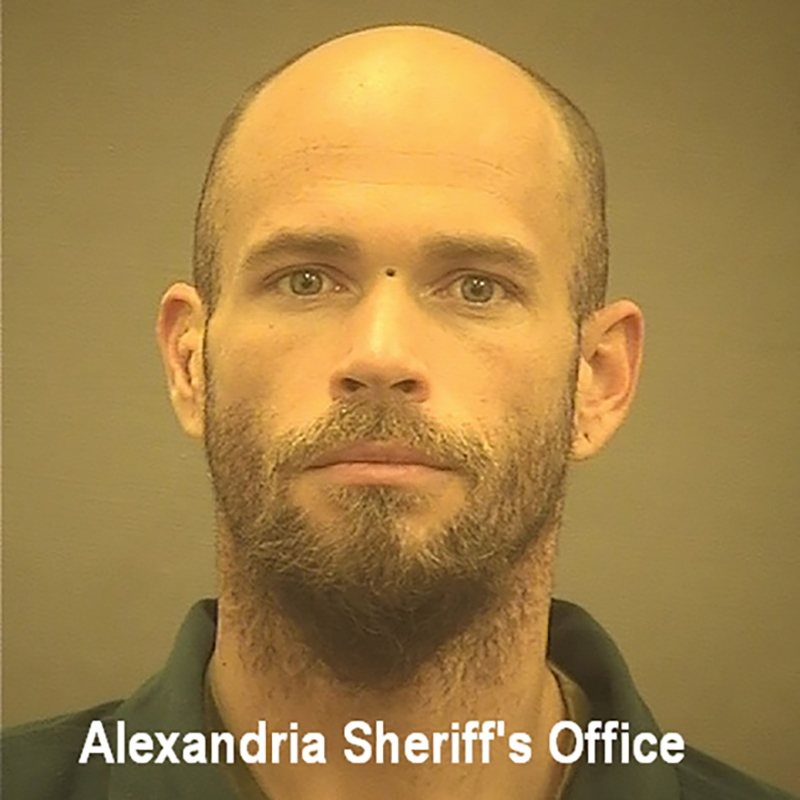WASHINGTON – A contrite Jacob Anthony Chansley, the self-described “QAnon Shaman” who became the face of the Jan. 6 attack on the U.S. Capitol, was sentenced Wednesday to 41 months in prison for his role in the assault.
Chansley, who pleaded guilty to one count of obstructing an official proceeding, told U.S. District Judge Royce C. Lamberth that he accepts his guilt but that he is a changed man who would “try with all of my heart and soul to stop people” if the assault occurred today.
But Lamberth said that while he believed the Arizona man’s remorse was genuine, what he did was “horrific” by making himself the “epitome of the riot.”
“You didn’t slug anybody, but what you did here was actually obstruct the functioning of the whole government,” Lamberth said. “You know what you did was wrong.”
Chansley was among the first 30 rioters to breach the Capitol on Jan. 6 and is easily recognized in videos and photographs from that day that show him in face paint, a spear in his hand and a horned bearskin headdress on his head.
He is one of more than 600 people, seven from Arizona, who have been arrested in connection with the Jan. 6 insurrection that chased then-Vice President Mike Pence and members of Congress from the House chamber, halting their attempt to certify the Electoral College vote that made Joe Biden president.

Jacob Chansley without the face paint and clothing that made him a symbol of the Jan. 6 attack on the U.S. Capitol. The Arizona resident told a federal judge he was “truly, truly” sorry for his actions that day. (Photo courtesy Alexandria, Va., Sheriff’s Office)
That assault followed a rally by then-President Donald Trump who urged his supporters to march on the Capitol and stop the certification. Thousands marched and hundreds breached a lightly protected Capitol, injuring hundreds of police and protesters in the hours that followed. Five people died that day and several police officers later committed suicide.
According to court documents, Chansley made his way to the Senate floor and scrawled a note on the dais that read: “It’s only a matter of time justice is coming!” He then led a group in a prayer over a bullhorn, saying, “Thank you for allowing us to get rid of the communists, the globalists, and the traitors within our government.”
But during his address to the court Wednesday, Chansley claimed he is “not an insurrectionist” and is simply a “good man who broke the law.”
Of the 35 sentenced so far, Chansley has received one of the longest sentences. The only other defendant to get 41 months was Scott Fairlamb, a New Jersey man who assaulted an officer during the insurrection.
Chansley’s attorney pointed out Wednesday that his client did not participate in violence like many others.
“You cannot characterize every Jan. 6 defendant based on, and labeled under, one monitor,” said Albert Watkins, the attorney. “Not all of those who participated in Jan. 6 are the same.”
That was echoed by Chansley in his comments to Lamberth before he was sentenced.
“I may be guilty of this crime … but I am in no way, shape or form a dangerous criminal,” Chansley said. “And It’s hard to grow to our full potential when we’re judged on one mistake.”
During his 30-minute address in court, Chansley said his time in solitary confinement has allowed him to reflect on his life and actions and said he accepts responsibility and is remorseful of his participation in the attack.
“In retrospect, I would do everything differently on Jan. 6, everything,” Chansley said. “With all honesty, I would try with all of my heart and soul to stop people.”
Chansley pointed to previously undiagnosed mental health issues that his time in solitary confinement exacerbated, and now just wants to move on.
“They say every sinner has a past, and every sinner has a future,” Chansley said. “Well that’s certainly true. I want to grow past what I was.
“I just want the trauma to stop, I want to heal,” he added. “I want to grow beyond the symptoms. I want to be more than I was.”
But that remorse was not enough to prevent the sentence Lamberth imposed because “for good or bad, he (Chansley) made himself the very image” of the attack, the judge said.
Along with the 41-month sentence, Chansley will also have to pay $2,000 in restitution and was sentenced to 36 months of supervised release, during which he will have to undergo drug testing and a mental health treatment.
He will get credit for the 317 days he has already served in jail, leaving about 2.5 years remaining on his sentence and a projected 2024 release date.
Chansley originally faced six counts, including civil disorder and violent entry and disorderly conduct in a Capitol building. He pleaded guilty in September to obstructing, a charge that could still have netted up to 20 years, but prosecutors agreed to ask for a shorter sentence as part of the plea deal.
At the start of Wednesday’s hearing, Assistant U.S. Attorney Kimberly Paschall asked for a 51-month sentence, saying that while “this is unprecedented territory for all of us,” the longer sentence is needed to “send a message” that illegal actions will have consequences.
Watkins told reporters afterwards Chansley is not disappointed with the outcome.
“He gets it, he understands what he is looking at,” Watkins said. “He is absolutely embracing being held accountable.”
-Cronkite News reporter Kimberly Silverio-Bautista contributed to this report.


